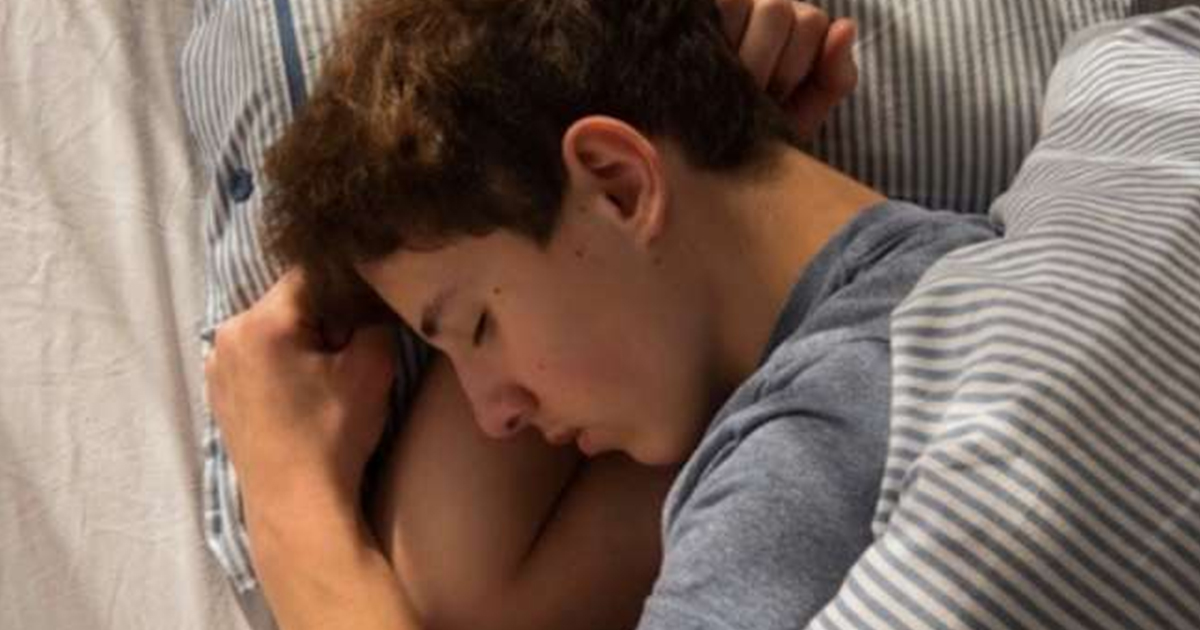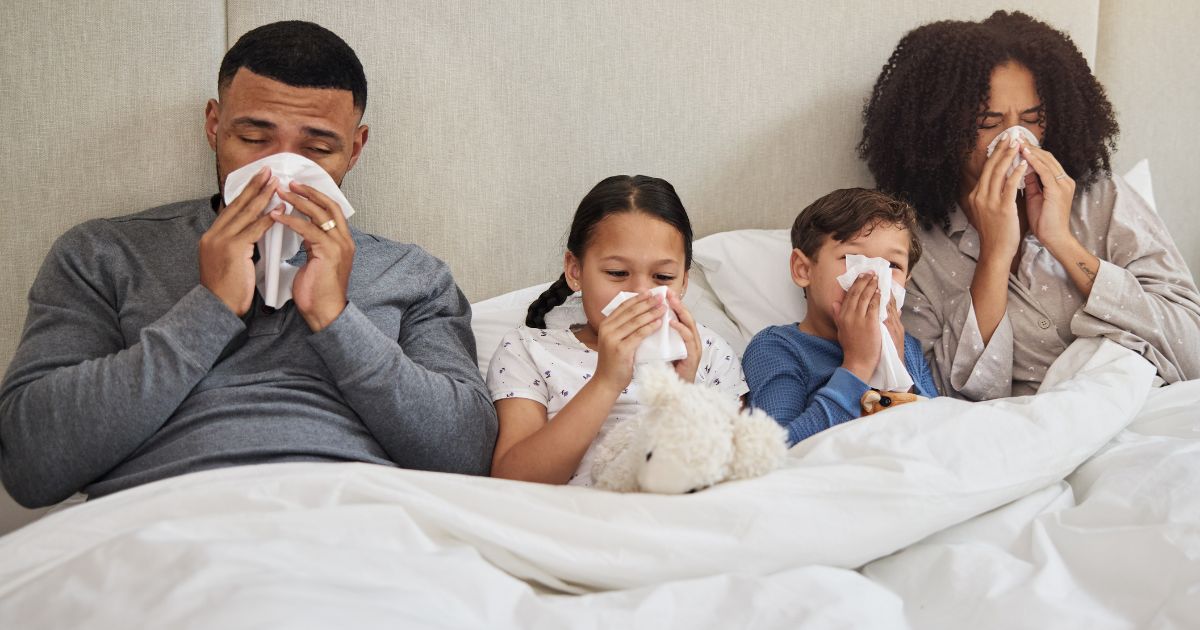How much sleep does a teenager need? If you’ve had the pleasure of raising, or living with, a teenager, you may have observed that they tend to have a seemingly love-hate relationship with sleep. Waking a teenager up for school in the morning is often a multi-tiered process involving the combined efforts of bright lights, loud noises, and occasionally the tactical use of cold water. Staying up late, and sleeping in all weekend is typical behavior for kids at this age, but at what point does it become a problem? When do these irregular sleep habits begin to affect their performance at school, their mood, or even their overall physical and cognitive health? In this blog, we will discuss these questions and go over many of the important roles a healthy sleep schedule can play in a teenager’s life, and how much sleep they genuinely need.
Do Teens Need More Sleep?
Do teens need more sleep than younger kids? The short answer is yes. Before they began puberty, you may recall your child having a seemingly limitless amount of energy, enthusiasm, and probably even more productivity. However, once they reach the age of puberty, their bodies begin going through a second phase of maturation. This involves many of the physical changes that we’re already mostly aware of, but how often do we take the time to consider the changes going on in their brains? This second stage of maturation involves a significant change in their cognitive functions, not to mention their brains’ natural reactions to the hormones rushing through their bodies. One critical element to understand is that nearly all teenagers during this stage experience a change in their natural Circadian rhythm, the body’s natural production of sleep hormones, making it more difficult for them to fall asleep and wake up on time than it was a few short years ago. Add stress and the electronic stimulation they get from their computers and cell phones into the mix and you get a cornucopia of sleep disruptors actively working against them. So, believe it or not, their brains are working much harder than they’ve ever had to work in their lives, thus far. As a result, teenagers will require, on average, 9 to 9 ½ hours of sleep per day, depending on the individual, or you could simply expect to see them needing one additional hour of sleep than they needed when they were younger.
Are They Getting Enough Sleep?
Now that you understand your teenager’s need for that extra sleep, it is now time to talk about sleep deprivation. Many parents, guardians, and authority figures fail to recognize this need for additional sleep, and since their need for sleep is so much greater, the consequences of not getting enough sleep will become more dire as well. Sleep deprivation is tied to a number of cognitive and behavioral health issues like depression, anxiety, mood swings, and memory, and can oftentimes lead to more severe sleep disorders that follow them into adulthood. If your teenager seems unusually depressed, moody, or stops performing well in school, and you’ve ruled out the common external factors and distractions, you may come to realize that the culprit for these changes is sleep deprivation. If your teen is experiencing routine sleep deprivation, it is time for you to intervene and help resolve this problem as quickly as possible. A few things you can do to help are:
- Encourage taking naps during the day after school.
- Discuss a strict bedtime schedule.
- Remove or limit the use of electronic devices at night.
- Have breakfast in the sunshine, allowing daylight to help the waking up process.
- Involve them in sports or exercise after school.
- Enforce “No Sleep, No Car” rules as a deterrent for skipping bedtime.
- Schedule a checkup with their doctor to see if sleep treatment is needed.
Whichever strategies you decide on, it is important to make sure that it is a discussion and not a mandate. They aren’t little kids anymore, and attempting to force your teenager to go to bed will only trigger their delightful instincts to rebel. They are the ones who need to realize how important sleep is and getting the message across is the goal, not just dictating their behavior.
Other Ways To Help
Being a parent is difficult, and being a parent to a teenager is a different weight class of its own. Aside from discussing the importance of sleep and taking the measures mentioned above, it is important to understand things from their perspective. For starters, give the kids a break. Take a moment to think about how poorly your day goes when you have to get up and go to work in the morning and you didn’t get a good night of sleep. It happens all the time, right? Now take that typical cranky, unproductive, low-energy type of day and add an algebra or chemistry class to it. Next, add some peer pressure and social struggles. Are you getting tired yet? I hope not, because when you get home you have three homework assignments and a science project to work on…and your girlfriend/boyfriend is mad at you. You also forgot to clean your room, and your dad is going to need you to mow the lawn this weekend. Teenagers have busy lives, and their brains are already struggling to keep up with the new demands of their developing bodies. Becoming a source of more stress will only serve to increase the cortisol production in their bodies, which thoroughly obstructs the natural production of melatonin, and further exacerbates the problem. Become a resource for your teenager. Do what you can to help them with their daily struggles, and help them get the sleep they need. You will see an improvement.
The Jacksonville Sleep Center Can Help!
Sleep is one of the most important aspects of our lives for a productive and healthy lifestyle, but many times our decisions, behaviors, and habits compromise our best efforts of getting a good night’s rest. For many others, however, sleep deprivation is the result of an underlying condition or sleep disorder that cannot be helped or corrected without sleep treatment. The Jacksonville Sleep Center has a team of dedicated professionals ready to help you get back to a normal, healthy sleep schedule and regain control of your health. For more information, visit our website and schedule your sleep study today.






